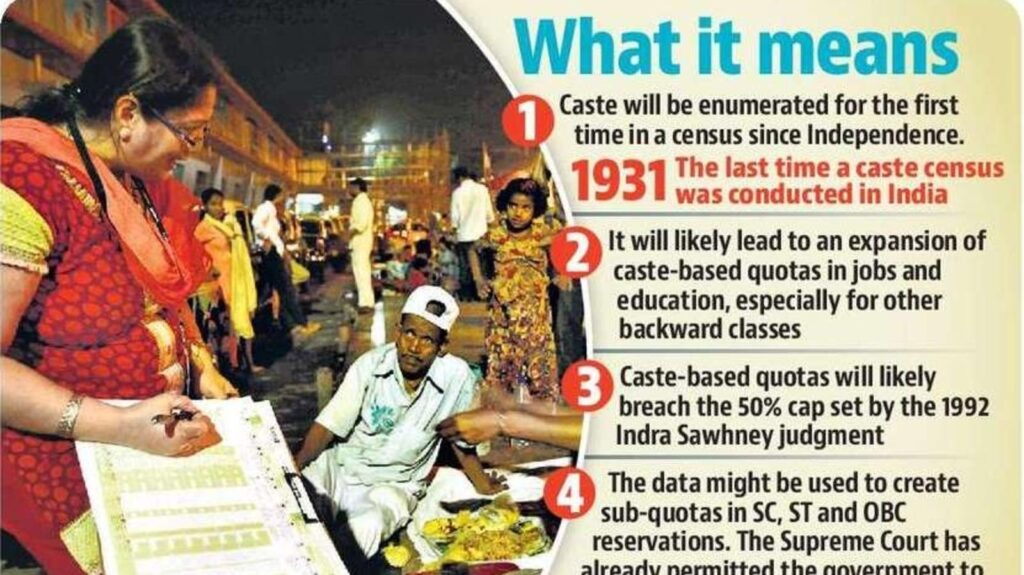Congress Launches Drive for National Caste Census to Combat Social Disparities
In a landmark move aimed at tackling deep-rooted social inequalities, the Congress party has initiated a campaign advocating for a comprehensive caste census across India. This effort underscores the necessity of collecting detailed caste-based demographic data, which is seen as vital for designing policies that effectively support marginalized groups. With caste-related disparities continuing to challenge social cohesion and economic progress, this call reflects an increasing awareness of inclusive governance’s importance.
Congress leaders are actively mobilizing support on multiple platforms, stressing that precise and granular data is indispensable for crafting impactful welfare programs. They point to Telangana’s recent caste enumeration exercise as an exemplary model demonstrating how such data can drive equitable policy-making and promote social justice nationwide.
Why a Nationwide Caste Census Matters
The push for a national caste census stems from several critical objectives:
- Evidence-Based Policy Making: Detailed caste statistics enable policymakers to tailor interventions specific to community needs rather than relying on broad assumptions.
- Fair Distribution of Resources: Accurate demographic insights help ensure government schemes reach those most in need, reducing resource misallocation.
- Addressing Historical Inequities: Recognizing the complex fabric of India’s social hierarchy allows targeted redressal of long-standing injustices and fosters societal harmony.
| Status Quo | Post-Census Potential |
|---|---|
| Caste categories broadly defined or outdated | Diverse and updated caste demographics with finer granularity |
| Schemes based on generic assumptions | Bespoke socio-economic programs targeting specific communities’ challenges |
| Inefficient allocation leading to gaps in welfare delivery | A more balanced distribution framework ensuring inclusivity and fairness |
The Telangana experience serves as proof that systematic data collection can empower disadvantaged populations by informing transparent governance mechanisms designed around their realities.
Telangana Model Demonstrates Impact of Precise Caste Data Collection on Social Equity
The Congress party highlights Telangana’s pioneering approach in conducting an extensive caste enumeration exercise as a benchmark for national replication. This initiative has received commendation from various political quarters due to its comprehensive methodology and tangible outcomes in addressing socio-economic disparities among different castes within the state.
Main Features of Telangana’s Enumeration Strategy:
- Diverse Data Capture: Beyond headcounts, the survey gathered information about living standards, education levels, employment status, enabling nuanced understanding of each group’s conditions.
- Civic Participation: Engaging local stakeholders during data collection fostered trustworthiness while improving accuracy through community validation processes.
- Tailored Welfare Programs:The insights gained informed customized government initiatives aimed at uplifting Scheduled Castes (SC), Scheduled Tribes (ST), Other Backward Classes (OBC), among others—resulting in improved access to benefits across these groups.
| Caste Group | Population Share (%) | Access Rate To Government Schemes (%) |
|---|---|---|
| Scheduled Castes (SC) td >< td >16% td >< td >82% td > tr > | ||
| Data indicates scope for enhanced inclusion efforts | tr > | |
This model illustrates how accurate demographic profiling can translate into measurable improvements in welfare outreach. Advocates argue that scaling this framework nationally could significantly reduce systemic inequities by aligning resources with actual community needs rather than estimations or outdated figures alone.
Strategies for Successful National Caste Enumeration and Policy Integration
Laying groundwork based on lessons learned from Telangana will be crucial if India embarks upon implementing a nationwide caste census. The following strategic pillars are recommended by experts involved with similar large-scale surveys worldwide:
- < strong>Cultivating Community Trust: < / strong>This involves early engagement with local leaders & civil society organizations who can advocate participation while dispelling fears related to privacy or misuse.< / li>
- < strong>Aware ness & Education Campaigns:< / strong>An extensive public information drive explaining why such data matters will boost cooperation rates during enumeration.< / li>
- < strong>D igital Tools & Analytics: strong>The use of mobile apps, GIS mapping technologies combined with AI-powered analytics ensures higher precision along with faster processing times.< / li>
- < strong>M ultilevel Transparency: strong>A clear communication strategy detailing how collected information will be used safeguards against mistrust; simultaneously protecting individual confidentiality remains paramount.
li> - < strong>S ocioeconomic Linkages: strong>Tying census results directly into indicators like income levels, education attainment enables policymakers craft multidimensional interventions addressing root causes beyond mere numbers.
li> - < strong>M onitoring & Feedback Loops: strong>An independent oversight committee should continuously review methodologies while incorporating feedback from diverse stakeholders ensures adaptability throughout implementation phases.
li>Looking Ahead: The Future of Social Equity Through Data-Driven Governance
The intensifying debate around instituting a national caste census marks an important juncture in India’s pursuit toward equitable development. By championing evidence-based policymaking inspired by successful regional models like Telangana’s exhaustive enumeration process,Congress aims not only at better resource targeting but also fostering greater transparency within administrative frameworks responsible for social justice delivery. p>
This momentum signals growing acknowledgment among policymakers that without precise demographic insights reflecting India’s intricate societal mosaic,sustainable solutions remain elusive . As more states engage constructively in this dialogue over coming months,a well-executed national census could redefine approaches toward affirmative action policies , ultimately reshaping India’s socio-political landscape toward inclusivity . p>
